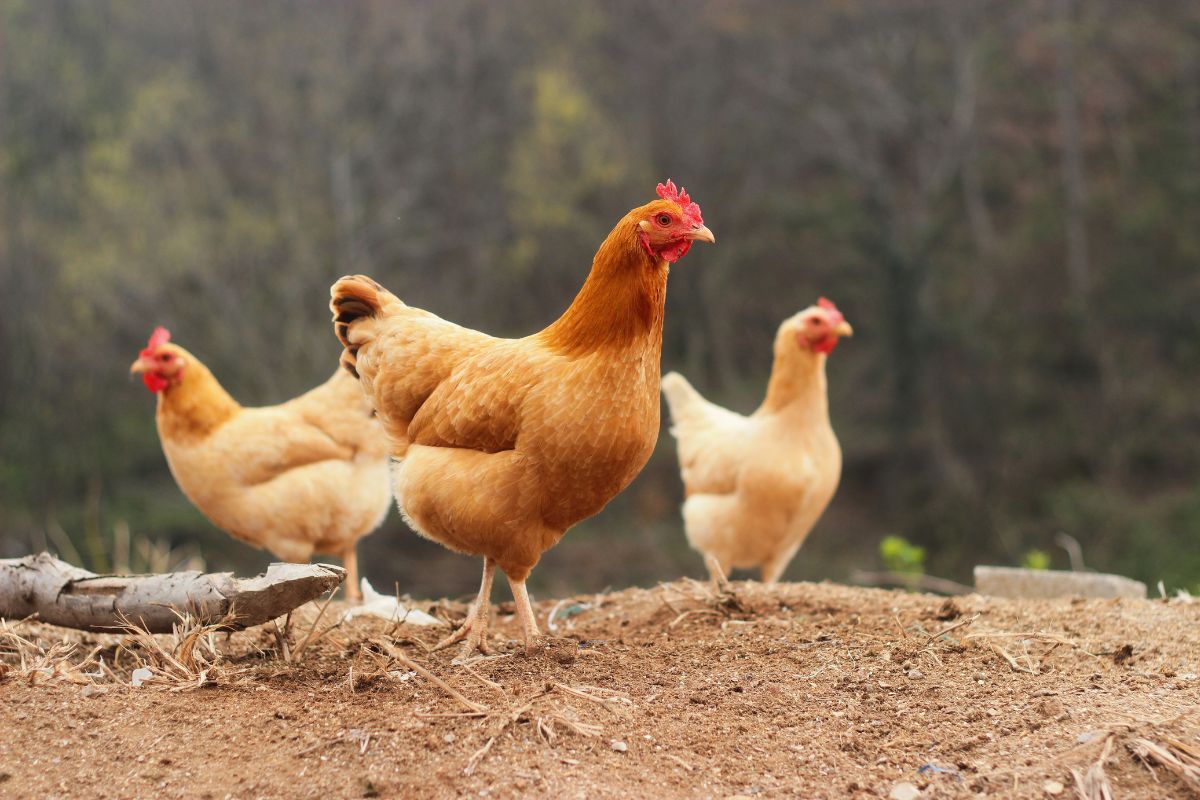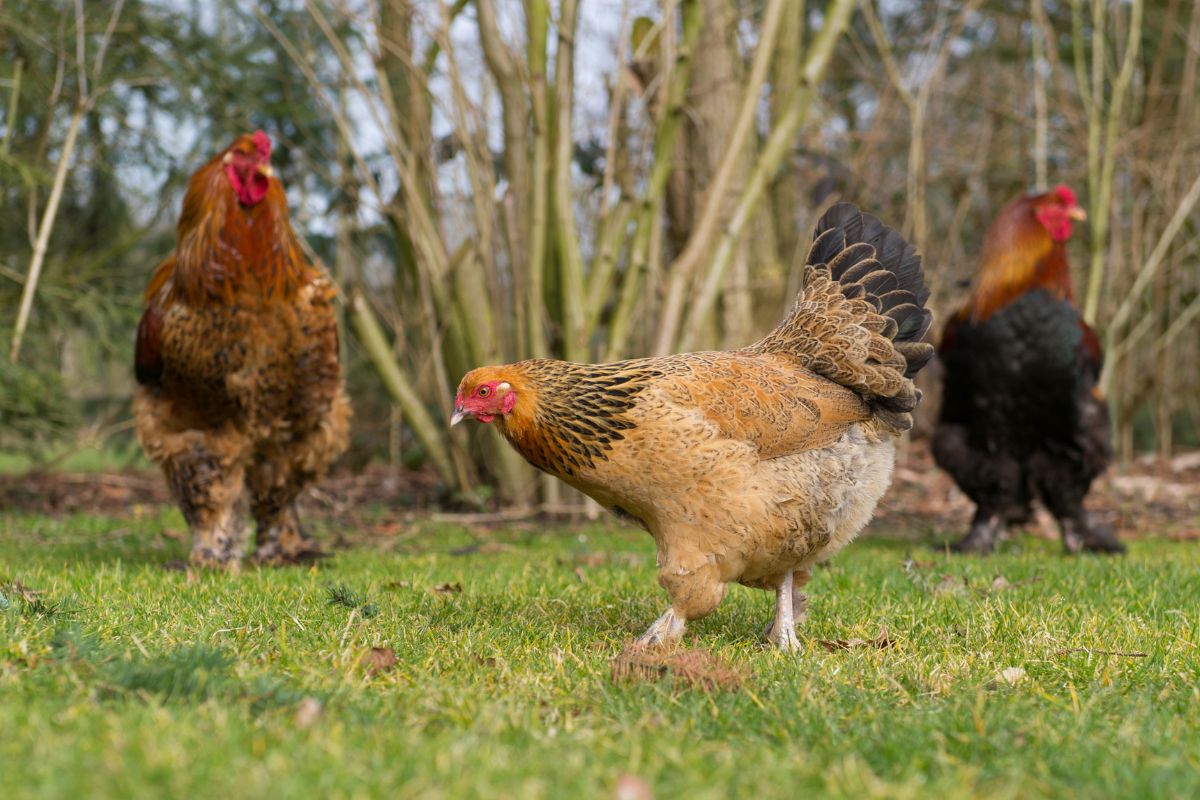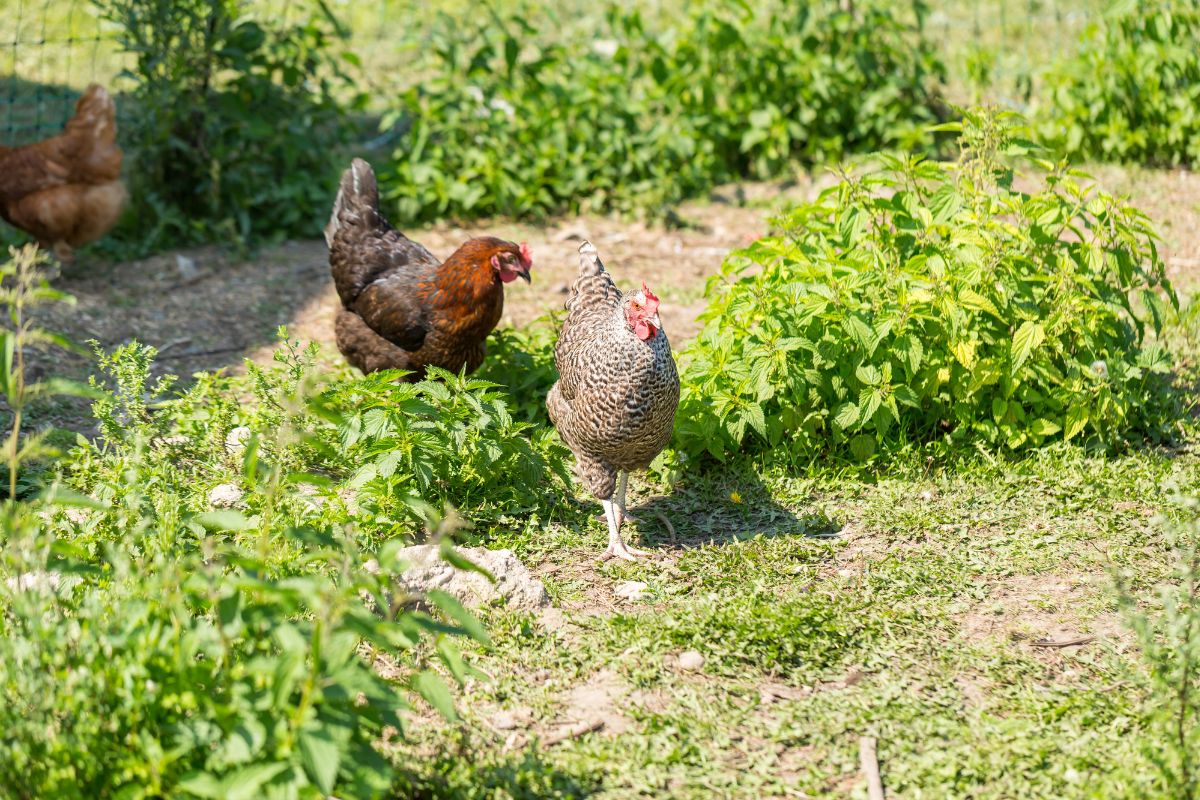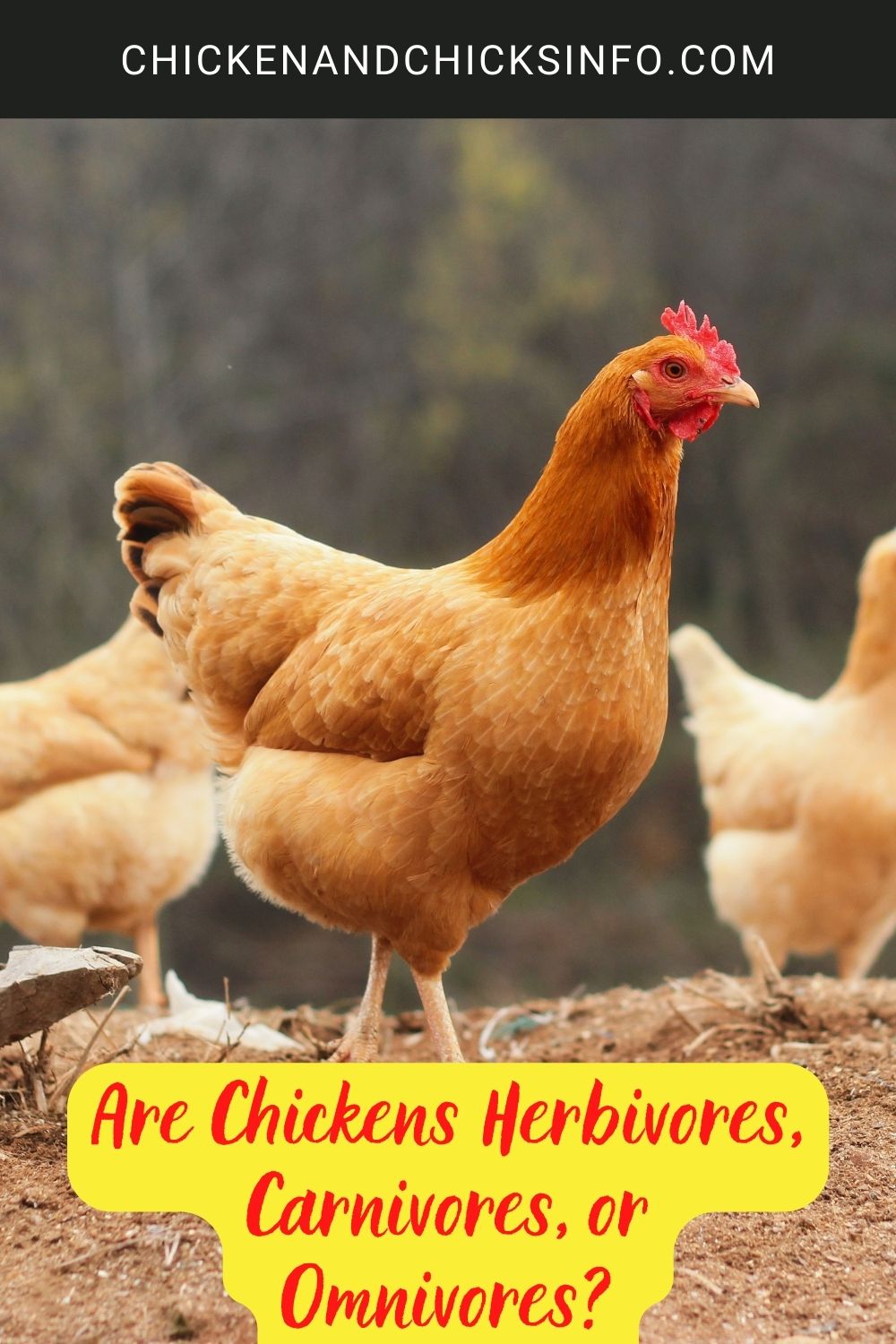
A question I often see come up in trivia quizzes is, “are chickens herbivores, carnivores, or omnivores?”
If you’ve raised chickens, this is an easy one to answer - chickens are omnivores.
What does this mean?
If you look up the word omnivore in the dictionary, you’ll see it explained as:
noun: omnivore; plural noun: omnivores
an animal or person that eats a variety of food of both plant and animal origin.
I think the reason why there is often some confusion around whether or not chickens are carnivores, herbivores, omnivores, or even vegetarians, is that some chickens are raised on plant-based diets.
Plus, let’s be honest, chickens don’t look like meat-eaters, do they?
They aren’t known for being good at stalking and catching prey as a cat is, for example. They don’t even have teeth to enable them to chew meat or easily pull it from the bone!
Jump to:
What Meat Do Chickens Eat?
First of all, I won’t go into it in detail here, but just because chickens do not have teeth, it doesn’t mean they can’t eat meat.
Chickens peck at meats and hard foods to break them down to smaller pieces, then swallow them whole.
Food eventually makes its way into their gizzard, which is a strong muscular organ that - with the aid of hard grit - effectively “chews” up their food for digesting.
Related - What is chicken grit?
This means they’re able to eat meat and tough foods. If you want to give your chickens meat, as long as it’s not too salty, they’ll happily gobble it up.
Left to their own devices in the wild or while free-ranging, a chicken's source of meat will be insects and bugs for the most part.
Being the opportunistic foragers they are, they might even find a small rodent or a lizard too.
Some of the most common bugs and insects chickens are more than happy to find are:
Realistically, chickens will eat just about anything with four or more legs that’s small enough for them to catch and gobble up.
Why Chickens Are Not Herbivores

As I mentioned above, the main confusion revolves around whether or not chickens are vegetarians or herbivores.
There are some poultry manufactures that raise their chickens on vegetarian diets. In fact, just this morning I was in the supermarket and I saw some poultry products with a label stating;
USDA verified 100% vegetarian-fed chicken.
I can see why they’re doing this. Consumers want to think they’re eating non-GMO, organic, healthy meat. But in my opinion, there’s nothing healthy about feeding an omnivore a vegetarian diet.
Chickens are designed to eat meat and plants. They are healthier and happier for it, and excuse the loose pun, but it goes against the grain to force them to eat an unnatural diet.
If you look up the word herbivore in the dictionary, it’s described as:
noun: herbivore; plural noun: herbivores
an animal that feeds on plants.
"predatory carnivores and their herbivore prey"
Simply put, chickens are not herbivores because they cannot resist eating bugs and insects. They do eat plants too, but any animal eating meat cannot be classified as a herbivore.
Why Chickens Are Not Carnivores
Looking up the word carnivore in the dictionary, you’ll see it explained as:
noun: carnivore; plural noun: carnivores
an animal that feeds on other animals.
Chickens will feed on other animals, both dead and alive, but it only makes up part of their diet.
They also need a lot of the nutrition found in grains and plants to stay healthy. For this reason, they cannot strictly be called carnivores.
What Do Backyard Chickens Eat?

The typical diet of a backyard chicken comprises mostly of commercial feed. Chicken feeds are primarily made up of cereal grains, oilseed meals, and animal by-products.
They are specially formulated to give a chicken all the key nutrition they need to stay healthy, lay eggs at their best, and meet all their other key nutritional needs.
In addition to their feed, almost all backyard chicken owners enjoy treating their flock to some table scraps, leftovers, and other foods that add some variety to their diets.
This typically involves fruits and vegetables, grains, cereals, and just about anything that might otherwise go to waste.
You should always check the food you’re going to give them is safe for their consumption though. Most foods we eat are fine, but there are a few that are toxic, such as chocolate, coffee grounds, some skins and pits of fruits, certain plants, etc.
Related - You can find out more about the dos and don’ts of feeding chickens scraps in the blog.
What Do Wild Chickens Eat?
Let’s not forget that chickens started out as wild free-roaming animals. Not the fancy breeds we commonly see in backyards and on farms around the world today.
In fact, there is still a huge number of wild chickens fending for themselves around the world. A lot of which are still linked to the original wild chicken, the Jungle Fowl.
They don’t have the luxury of finding a feeder topped up with feed twice a day, so what do wild chickens eat?
Actually, they still eat pretty much the same stuff as a backyard chicken. Or, maybe it’s more accurate to say a backyard chicken eats a similar diet to a wild chicken.
Because that’s what chickens want and need. They need some plant matter, wild seeds, grains, and animal foods to maintain optimal health.
All the stuff they’d find foraging in the wild, and pretty much the stuff that feed manufacturers add to their feeds.
This is why chickens are happiest and healthiest when given the space and terrain to roam free-range. They’ll find plenty of their own food sources through foraging and scratching around.
Related - Why are there so many wild chickens in Florida’s Key West?
In Summary
There is only one right answer to the question, are chickens herbivores, carnivores, or omnivores?
Chickens are definitely omnivores.
Regardless of the diet given to chickens in captivity, they’ll eat both meat and plants given the chance.





